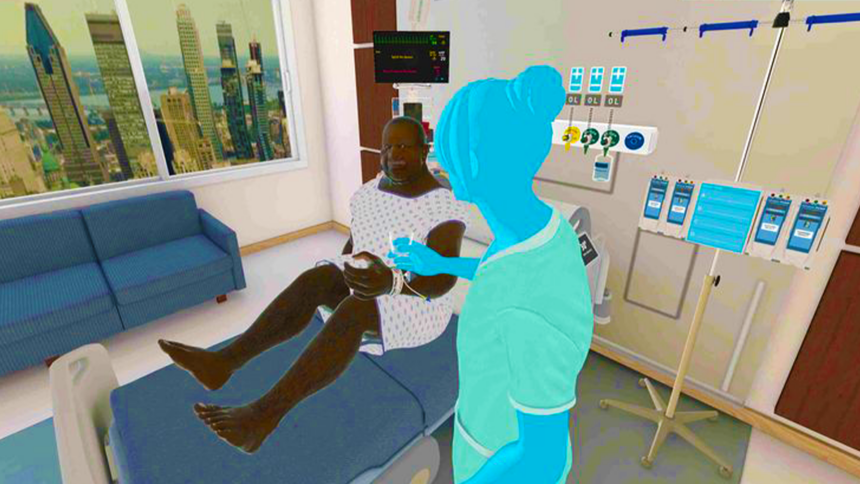
UbiSim makes nursing education more inclusive. The VR platform now features transgender patients and Alzheimer’s patients of different ethnicities.
Labster, the developer of UbiSim, a VR training platform for caregivers, has announced the addition of new immersive scenarios. These are designed to prepare nurses to deal sensitively and respectfully with vulnerable patient groups, particularly transgender and Alzheimer’s patients.
In UbiSim, nursing students gain hands-on experience interacting with patients in a safe environment through realistic VR simulations. The VR training enables future nurses to improve their clinical judgment and communication skills.
Educators with no programming skills can utilize UbiSim to generate fresh VR situations and personalize pre-existing ones. There are diverse patient, family, and caregiver personas available, showcasing various ethnic backgrounds. Such functionality aims to enhance cultural proficiency in nursing education.
Virtual reality aids nursing education
Virtual reality (VR) presents numerous benefits when it comes to training nurses and surgeons. It offers a lifelike simulation and enables them to gain practical experience in a secure setting.
VR scenarios can be adapted to the specific needs of different patient groups to promote cultural competence and respectful treatment of disadvantaged patients.
In addition to training, VR can also be used to remotely support surgeons during operations, as shown in the example of “Teleproctoring”. This could help reduce the cost and complexity of medical care and improve access to specialized surgeons.







